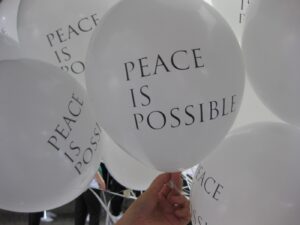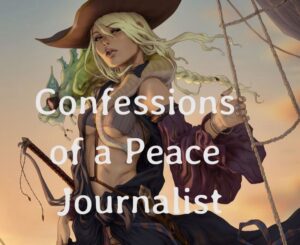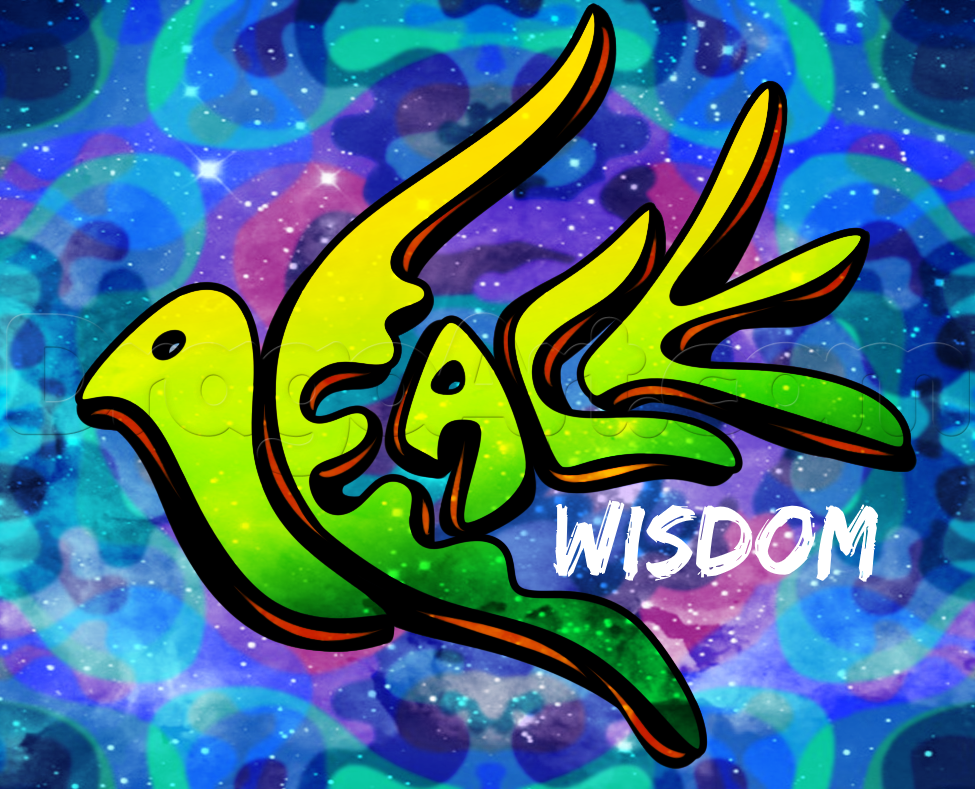
On the road at the #MLK50 Conference – This Peace Log was first published on April 9, 2018.
Along with about 4,000 other people, I’m getting ready to attend the #MLK50 Conference in Memphis, Tennessee, organized by the Ethics & Religious Liberty Commission, ERLC.
As a peace journalist, the PR staff at the ERLC were kind enough to arrange interviews for me with two of the top pastors in the nation. The overall theme of the conference was “Racial Reconciliation and Unity Among All Human Beings”.
These leaders shared both their joys and their challenges with me as I asked them about Martin Luther King Jr.’s legacy of nonviolence and about how peacebuilding happens in their congregations, and in America.
Churches, of course, have conflicts, too. Anyone who’s ever witnessed hypocrisy by “religious people” can attest to that. In my own faith journey, I’ve learned that I can blame “religion,” but my relationship with others on the planet and how I can rise above conflict situations remains with me regardless. Making peace is what enables forward movement. After all, we are all light bearers.
The wisdom these leaders shared with me applies to organizations of all sizes and kinds— across denominational, party and country lines. Their observations demonstrate the long-term benefits of peacebuilding, personally and as a society.
Here is what they had to say:
Peace Wisdom from Dr. Ralph West (Houston, TX)
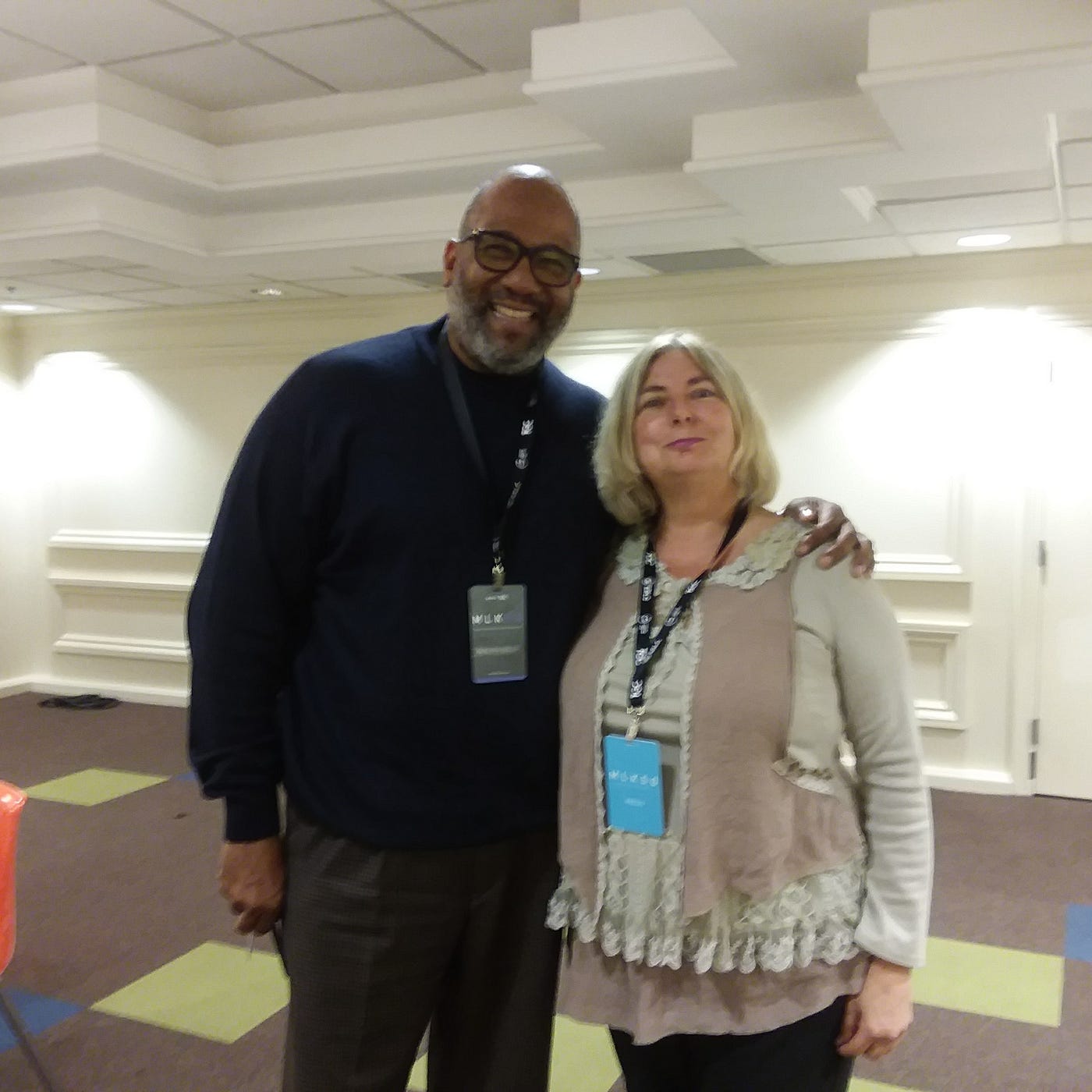
(Dr. Ralph West, affectionately known as PAS, serves as founder and senior pastor of The Church Without Walls (Brookhollow Baptist Church, Houston, Texas). He first preached as a sixteen year old in his native Houston. The church began with 32 members and now embraces 24,000+ families meeting in three locations and conducting six services each Sunday.)
“MLK Jr’s nonviolence peace approach, as much as you and I relish it… There were many who did not… We’ve seen enough about what violence and what the lack of peace can do, and there’s never anything good that comes out of that. It’s unfortunate, ironic and almost providential that the peacebearer would be violently killed.
Building unity by challenging Islamophobia
Well, in my case I’m a pastor, and I think that we have to reach out of our parameters. Two situations come to mind.
One project we do at our church is to hire high school students to work at our church so that they can have a job and save their money for college. Well, the issue is, one of the young ladies who wanted to get a job here was a Muslim. My question was “Does she need a job?” And she did and we hired her. We’re a Christian church and maybe some years ago I may have thought about it. But, now as father and a granddad, I wouldn’t want somebody to push my children or grandchildren away because of their religious persuasion. I was not thinking theology at this point, but rather ethics and community. The issue is what signal does this send to her? What signal does this send to the church?
Another situation involved the leader of the Islamic community in our area. Their facilities are behind ours. They didn’t have enough parking at all and they came to us and said, “Can we use your parking lot?” They told us what days it would be and how long it would be. We said yes. We have 3,500 parking spaces and they parked 3,500 cars out there. We didn’t know when they came or went. They were so polite. It was a great community builder. It turns out that one of our bankers worships there… and when we got ready to do another project and approached (the city) about rerouting the traffic because we had children playing there, these were the people responsible for the decision. They signed off on it. So, it’s through community building that we all progress.
I think it’s just working together. Can you rise above your idiosyncrasies?”
Peace Wisdom from Rev. C.J. Rhodes (Jackson, MS)
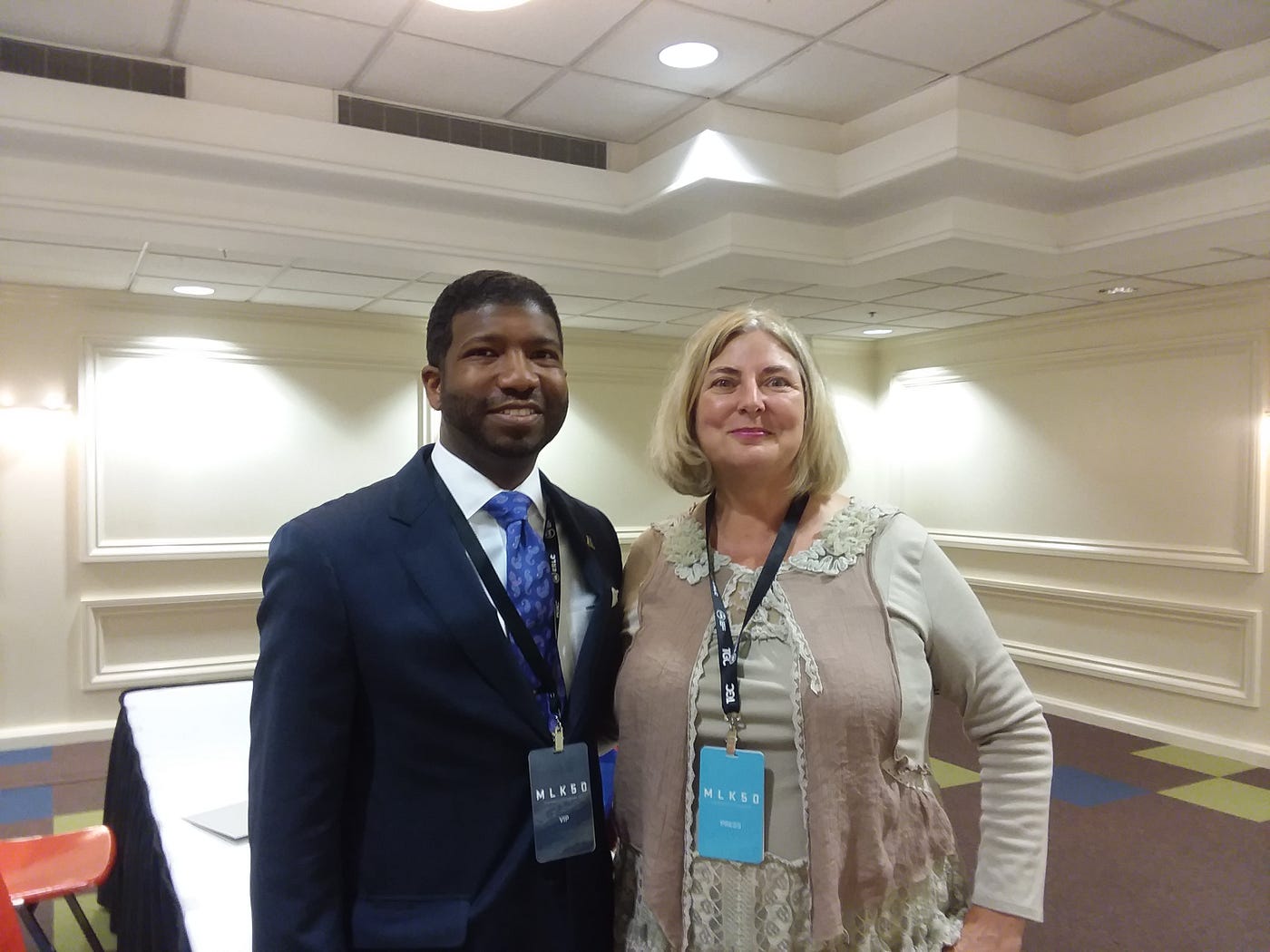
(In 2010, Rev. C.J. Rhodes became the youngest pastor of Mt Helm Baptist Church, Jackson, Mississippi’s oldest historically African-American congregation. It began with several enslaved blacks worshiping in the basement of First Baptist Church. In 2013, he also was employed by Alcorn State University to lead the religious life of the campus and to also teach a course in Ethics. He is the son of famed civil rights attorney Carroll Rhodes Sr.)
“Rev. Dr. Martin Luther King always spoke about himself and the work he was doing from the place of the church.
He was a Baptist minister and preacher and his civil rights activism flowed out of his understanding of the call of the Gospel that we had to be concerned with soul salvation and social liberation and transformation. What motivated him, of course, was that deep faith conviction, as well as the strategy of nonviolence. That is, how do you engage in social change in ways that do not result in violent conflicts?
Building bridges, not walls
Today, student activist groups all across the nation are dealing with issues as far ranging as police shootings, to gun reform, to abortion… In all of these, there is the central theme of how do we engage the public, how do we engage the conscience of the nation, in not shooting and stabbing those persons with whom we disagree?
So, one of the things we see, particularly from Millennials, is that even though they may not be altogether familiar with Dr. King’s strategy, they know him as a preacher of love. As a preacher of how do we build bridges, not walls.
The role of the church today is to help tease this out even more, as we help to nurture this generation of activists and advocates… Spirituality and faith do make organizing easier… I’ve heard it said that “trust moves at the speed of relationships”… As churches, we must do more mobilizing… We must do friend raising, not just fundraising.”
The collaborative nature of the peace process

Both Rev. West and Rev. Rhodes shared how true peacemaking — which first means listening with an open heart — may be a slower process than just making a judgment or determination and running with it. But, it provides relational dividends.
And when we say “process,” we mean process. Peacemaking is actually the path to peace. The collaborative process of coming to terms with another person or group provides lessons in peacemaking along the way, and establishes trust between people, which is the key ingredient in building or restoring any relationship, human and Divine. By dialoging — through conversation with other people and through prayer with the Divine — we literally create more light and more opportunities in our lives. (Even if the other person does not want to talk, I’ve seen that sending light and love to them— i.e. prayer — still accomplishes much.)

Dr. King made the point, too, that peacebuilding must come from the heart. First and foremost, nonviolence means you decide not to hate or harm another, even though you may not agree with him/her. We all are doing the best we can, or we would do better. Let us grant each other kindness and peace and forgiveness; these are our most basic gifts to each another. It’s all about valuing our human dignity, and life itself.
Nonviolent resistance is more than twice as effective as violent struggle
In closing, allow me to briefly introduce you to the illuminating work of Erica Chenoweth and Maria Stephan. An article on Peace Direct reported the results of their study. In comparing more than 300 armed and unarmed movements, they found that nonviolent civil resistance is more than twice as effective as opting for violent struggle, and leads to more democratic outcomes over the long term.
Peace isn’t just a groovy concept. It’s also pragmatic. Getting people involved — building from the grassroots — works miracles, literally. My cause is yours. Let us make peace the #1 priority on the planet — merging Dr. King’s dream with our own. War and violence serve no good purpose. As humans beings, we have evolved past that so let’s act accordingly. A new age is upon us.
“Blessed are the peacemakers, for they will be called children of God.” (Matthew 5:9)
